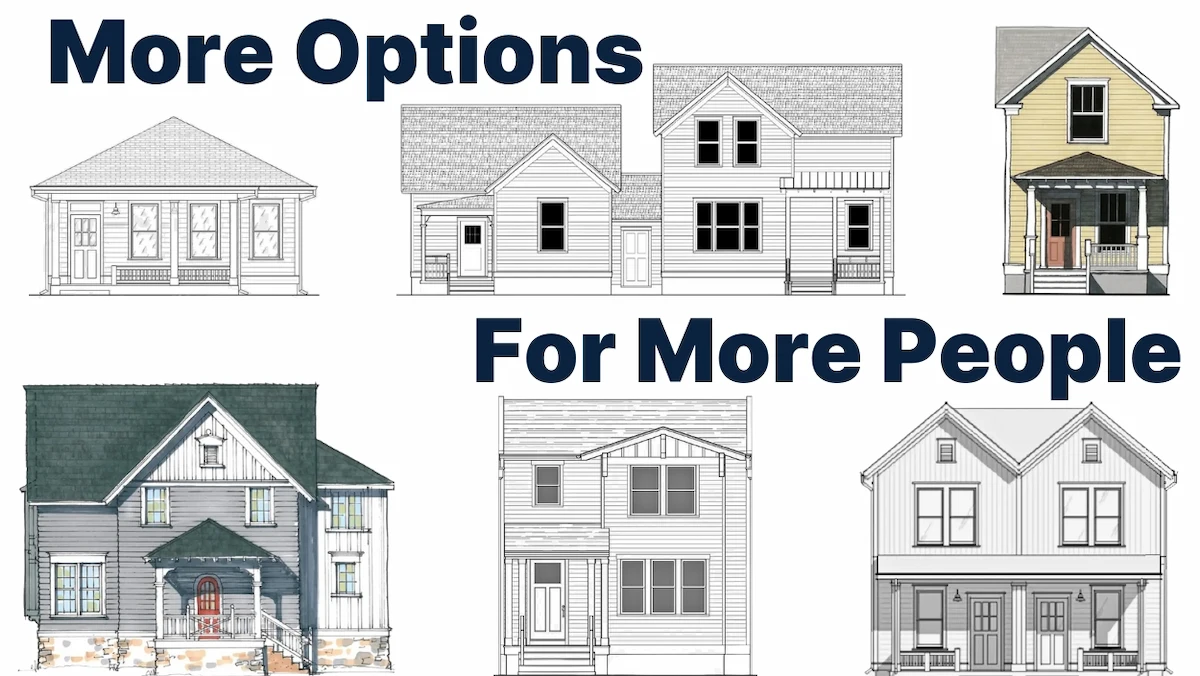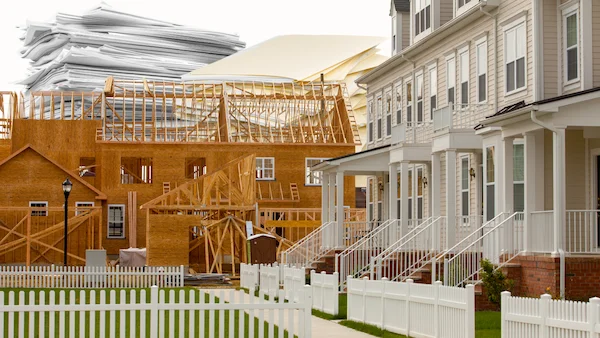Fayetteville, Arkansas, launched a new housing program that gives residents a clearer, faster path to building homes. People interested in building can now choose from a catalog of nearly 30 permit-ready plans that already meet the city’s zoning requirements. This reduces uncertainty, speeds up permitting, and lowers costs, particularly for people who have never built a house before.
Great cities aren’t built all at once. They emerge through countless small decisions, made by people who care. That care is evident in every facet of this program, from the designs themselves to the way the city is rolling it out.
Fayetteville worked with local architects to create the portfolio of designs, which range in size from backyard cottages to four-bedroom duplexes. The architects studied the design of existing homes in the area, making sure that every permit-ready plan would fit seamlessly into the community. This addressed one of the main concerns residents had about the program, according to Britin Bostick, Fayetteville’s long range planning and special projects manager.
City staff also did their homework when deciding how many plans to offer. They looked to similar programs in other cities — including Kalamazoo, Michigan, and South Bend, Indiana — and found that programs with greater design variety seem to be more successful. The current portfolio includes designs from a dozen different architects, and city staff plan to track which plans are most popular and adjust the offerings over time.
During the preparation process for launching this program, city staff also worked closely with local developers and builders. They learned that one of the main obstacles to building homes was the city’s sidewalk requirement. Building sidewalks is difficult, especially in historical areas, so city staff offered an alternative: Builders in the program can pay a fee instead of installing sidewalks themselves. Once multiple homes are built, the city can add all the needed sidewalks in a more efficient and coordinated way. Staff are also working on ways to make stormwater requirements easier to meet.
Currently, the program applies only to the downtown and Walker Park neighborhoods. Both areas already had master plans and updated regulations to support new housing. As two of the oldest neighborhoods in the city, they are well suited for infill development and share historical architectural styles that set them apart from the rest of Fayetteville. By focusing here, the city can provide a broad range of cohesive designs without breaking the bank.

Starting small also lets city staff work more closely with each developer. This is crucial, as they specifically want to encourage residents to get involved even if they have no prior experience with home building. “We are prepared to go step-by-step with people,” Bostick told the local news. “Show us your property and we’ll talk you through setbacks, we’ll talk you through zoning requirements, and we’ll talk you through stormwater requirements.”
This kind of proactive staff involvement is rare. In most cities, developers only meet with city staff after the planning process is nearly complete — which means they only find out about problems with their plan after investing a lot of time and resources. Fayetteville may be taking a cue from neighboring Bentonville, which recently started offering free 30-minute appointments with planning staff.
An easy-to-use online system complements the hands-on support from staff. Residents can check which plans work on their lot, see exactly what documentation is required, and follow step-by-step instructions for submitting permits. Together, the personal guidance and online tools make the process simple and approachable.
By reducing red tape, providing clarity, and offering strong builder support, Fayetteville is giving residents the tools to take an active role in addressing the city’s housing needs. It’s a practical example of how thoughtful city interventions can make a real difference — and it echoes the recommendations provided in Strong Towns’ housing toolkits.
Click here to learn more strategies for bringing housing and housing affordability to your community.




.webp)
.webp)